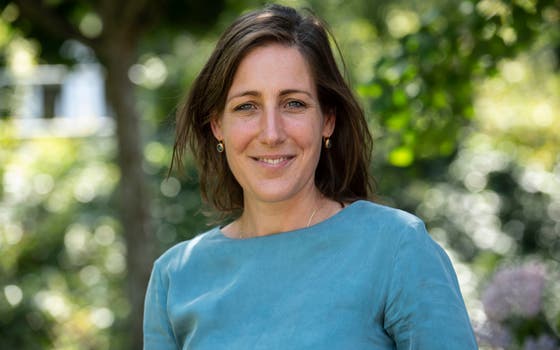Aug 1: Karijn Suijkerbuijk appointed as Professor of Immunotherapy

Internist-oncologist Karijn Suijkerbuijk of UMC Utrecht has been appointed professor of Immunotherapy of Solid Tumors effective August 1, 2022. This was announced by the Executive Board of Utrecht University. In this interview she explains how immunotherapy works, what makes this relatively new treatment so special and what she wants to achieve as a professor.
You have been appointed as Professor of Immunotherapy in Cancer. Congratulations! What exactly is immunotherapy, and what do you find so interesting about it?
"The great thing about immunotherapy is that it stimulates the body's own immune system to clear cancer cells. This is completely different from other cancer drugs, such as chemotherapy, hormone therapy or targeted therapy. These are aimed directly at the cancer cells themselves.
Immunotherapy can be seen as a kind of reset of the immune system. It reminds the immune system that cancer cells do not belong in the body and must be eliminated. If this reset works well, the immune system can then control the cancer itself, even if the disease has spread. The effect of the immunotherapy then continues even after the patient stops treatment. This is truly unique and very different from, say, chemotherapy, with which you only temporarily inhibit metastases."
Immunotherapy unfortunately does not yet work in everyone who has cancer. Is it possible to predict whether immunotherapy will work in a patient?
"Immunotherapy does indeed work better in some types of cancer than in others. In melanoma, an aggressive form of skin cancer, immunotherapy works in half of the patients. In lung cancer, it does in about a third of patients.
For an individual patient, we can't currently predict whether immunotherapy will work, but obviously we want to. In our research, we are working with artificial intelligence to develop an algorithm that can predict whether immunotherapy will work. To do this, we use patient data, images of the tumor on the CT scan and the microscope slides that the pathologist uses to make the diagnosis. If we know in advance that the treatment will not work, we save both the patient unnecessary side effects and society costs of expensive drugs."
Can you use immunotherapy to cure cancer as well?
"We used to think that cure is not possible in metastatic cancer. Now we are cautiously beginning to think that sometimes it can.
Patients in whom immunotherapy continues to work have no new metastases on their control scans year after year. We are now at the point where we think we can stop doing checkups and declare these people cured."
Of course, that's fantastic news!
"Definitely! But it's also quite complicated for these patients. First they heard that they were incurably ill. Many of them then stopped working and investing in social contacts. Now, suddenly, they have a future ahead of them again. At the same time, they remain anxious that the cancer will come back after all, and that is quite understandable.
Together with the Helen Dowling Institute, we are researching what the mental impact is when your prospects change so drastically. We want to support our patients as best we can to get their lives back on track."
So immunotherapy works well for some of the patients with melanoma and lung cancer. What about other cancers that are common, such as breast cancer and colon cancer?
"In common cancers such as breast cancer and colon cancer, immunotherapy unfortunately does not yet work for most patients. We think that for those patients we need to combine immunotherapy with other treatments. One example is histotripsy.
Histrotripsy involves using a kind of ultrasound machine to make vibrations in a tumor. Research in the laboratory shows that you can make cancer cells sensitive to immunotherapy with histotripsy. Later this year we will start a study with patients in which we will combine immunotherapy with histotripsy for the first time. "
The side effects of immunotherapy can be severe. Is there anything to improve about this?
"We think so. The side effects arise because the reset of the immune system is just a bit too thorough. The immune system then not only sees the cancer cells as foreign, but also some healthy cells. The side effects don't go away by themselves when we stop the immunotherapy. We have to fight them actively with immune-inhibiting drugs such as prednisone.
We don't yet know exactly how best to do this. In research using data from the Dutch melanoma registry (DMTR), we saw that if you give too many inhibitors for those side effects, the immunotherapy no longer works well. In the laboratory, we are now studying what exactly happens in the immune system of these patients with side effects. With that knowledge, we can better manage side effects without compromising the immunotherapy's effect on cancer cells."
